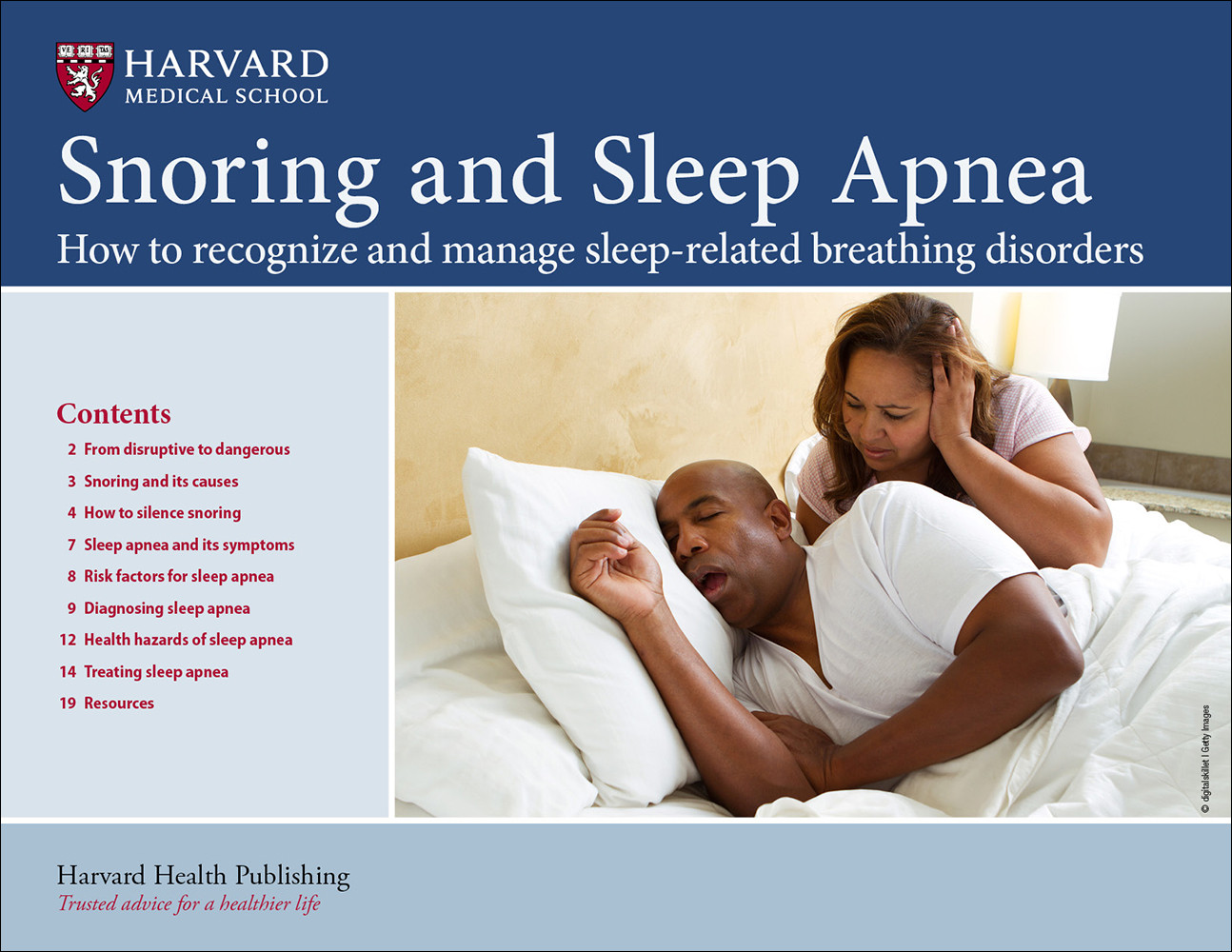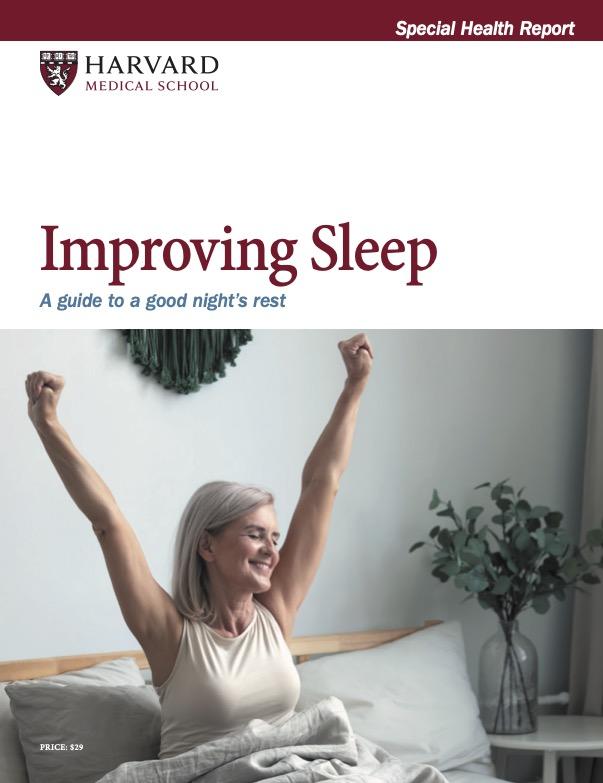In people with simple snoring, the airway remains open. Sleep apnea is a different story: people temporarily stop breathing many times a night. In people with the most common kind, obstructive sleep apnea, the soft tissue of the palate or pharynx completely closes off the airway. The brain, sensing a drop in oxygen, sends an emergency “Breathe now!” signal that briefly awakens the sleeper and makes him or her gasp for air. A far less common form of this problem is known as central sleep apnea.
How do you know if your snoring is a sign of sleep apnea? In addition to loud, persistent snoring, people usually have pauses in breathing accompanied by gasps and choking noises. Often, people don’t notice these symptoms themselves, but only learn about them from a bed partner or family member.Another telltale sign that should prompt a visit to your doctor is nodding off during the day—a direct result of not getting enough high-quality sleep at night.
Other symptoms that may be caused by sleep apnea include the following:
- nighttime restlessness
- trouble sleeping, with frequent awakenings
- difficulty with concentrating or thinking
- memory problems
- mood changes
- morning headaches
- vivid, strange, or threatening dreams
- nighttime waking to urinate.
Although daytime sleepiness is common with sleep apnea, some people are so used to sleep deprivation that they don’t realize they’re sleepy. Instead, they may see themselves as lazy, lethargic, or not very motivated. Or they may not think it is unusual to fall asleep at a movie or while sitting at dinner with friends. The less appropriate the circumstances (such as waiting in traffic while driving, or during a conversation), the more dangerously sleepy you’re considered to be. In fact, excessive daytime sleepiness can be one of the deadliest complications related to sleep apnea.













